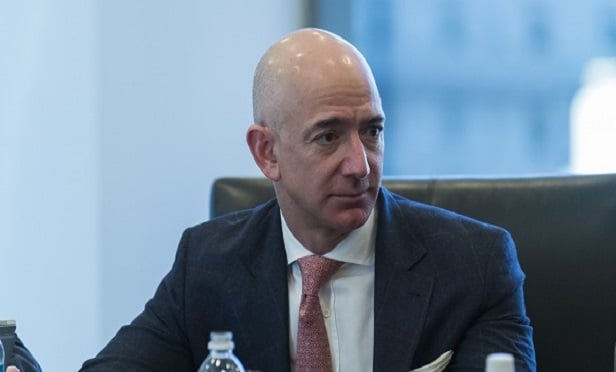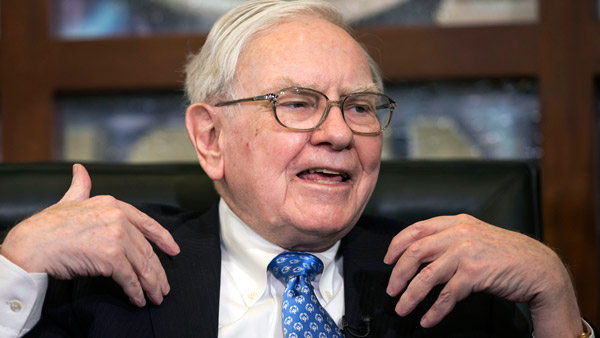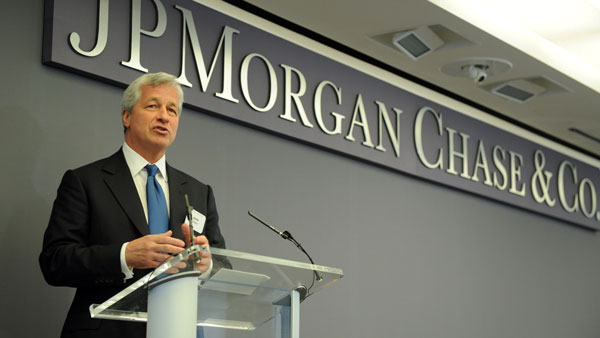Amazon, Berkshire Hathaway and JPMorgan Chase announced today that they have picked Boston to be the headquarters for their new group health benefits provider.
The “AmBerMorg” consortium also announced that it has hired Dr. Atul Gawande to be the consortium’s first chief executive officer.
(Related: Amazon v. Kaiser Permanente Health Benefits Smackdown)
Gawande is a surgeon at Brigham and Women’s Hospital in Boston, a professor at Harvard’s medical school, and a staff writer at The New Yorker magazine.
The Company
In January, Amazon, Berkshire Hathaway and JPMorgan Chase have said that they wanted to start a new, independent company that would be “free from profit-making incentives and constraints.”
The AmBerMorg companies said their new company would start out serving employees at Amazon, Berkshire Hathaway and JPMorgan, but that the company might eventually expand to serve other employers.
In the release about Gawande’s appointment, the AmBerMorg companies call the company they are forming ”a new company.”
The AmBerMorg companies again state that the new company “will operate as an independent entity that is free from profit-making incentives and constraints.”
It’s not clear from the announcements released so far whether the new company will actually be an AHP, a stand-alone health insurer with a short client list, a stand-alone health maintenance organization (HMO) with a short client list, a health benefits supermarket manager, or some other type of entity.
The Boston area is already home to several prominent nonprofit health plans, including Tufts Health Plan, Harvard Pilgrim Health Care and Blue Cross and Blue Shield of Massachusetts.
Atul Gawande
Gawande has a bachelor’s degree from Stanford, a master’s degree from Balliol College at Oxford University, and medical degree and master’s degree in public health from Harvard.
He has been a Rhodes scholar and a MacArthur fellow.
In 2009, he wrote an influential New Yorker article comparing the high-cost health care market in McAllen, Texas, with the low-cost, high-quality health care services available from the Mayo Clinic.
His HealthGrades.com profile shows that he takes patients with coverage from a number of for-profit and nonprofit carriers, including Aetna, Massachusetts Blue, Cigna, Humana, Harvard Pilgrim and Tufts.
He has extensive experience with operating on thyroid glands.
Gawande does not appear to have extensive health plan administration experience. Descriptions of his experience on the websites of Brigham and Women’s and other employers do not mention any titles related to health plan administration.
The AHP Comparison
The U.S. Department of Labor has now completed work on final framework regulations for a new generation of multi-state, multi-employer health plans, or association health plans (AHPs).
Observers at America’s Health Insurance Plans, the American Academy of Actuaries and other organizations have observed that AHPs will face many challenges, including problems with getting big enough to negotiate good rates from large health care providers, problems with projecting future health care use without help from a large pool of experience data, and problems with keeping the employers with younger, healthier employers from seeking lower costs elsewhere.
Because the three AmBerMorg companies are all large employers, they can start a large-employer AHP without help from the regulatory flexibility provided by the Trump administration’s new AHP regulations.
But the new AmBerMorg health benefits company may have to contend with the same kinds of forces that threaten to tear the new Trump AHPs apart.
Although the three AmBerMorg founding companies are very large, and have a total of about 1.1 million employees, that may give the new Boston-based health benefits company a total of only about 4 million employee and dependent lives. The company may have only about as much bargaining power as a small national carrier, or a large regional carrier.
The founding companies may also face big gaps in claim costs. Amazon, for example, is a much newer, California-based employer, with many workers in health care markets dominated by ultra-efficient HMOs. It may find that traditional carriers will offer it cheaper, richer coverage than the AmBerMorg carrier can provide.
Two advantages the new AmBerMorg health benefits company might have over typical Trump AHPs are easy access to Amazon data analysis technology, and actuarial expertise and experience data from the Berkshire Hathaway reinsurance operations.
— Read Trump’s Association Health Plans Will Be Like Big Employer Plans: DOL, on ThinkAdvisor.
— Connect with ThinkAdvisor Life/Health on Facebook and Twitter.







 June 20, 2018 at 01:09 PM
June 20, 2018 at 01:09 PM
















 Slideshow
Slideshow





